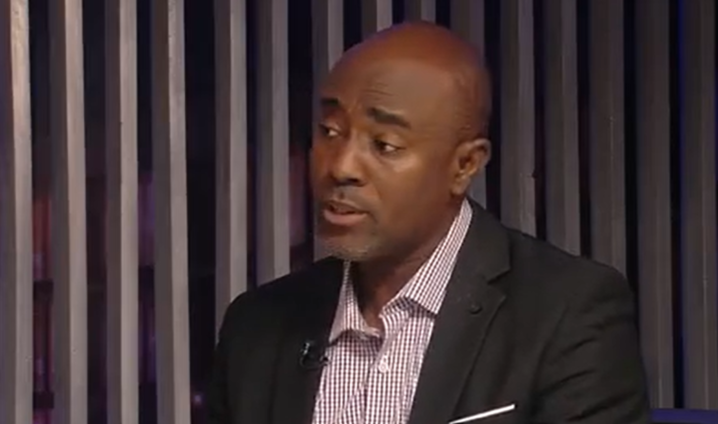A Statistician with the Ghana Statistical Service, Anthony Oduro-Denkyira, has highlighted some ways the gender pay gap in Ghana can be closed.
Speaking on PM Express on JoyNews, he explained that especially in the informal private sector, the social responsibilities women bear including motherhood among others affect the work put in and the amounts they earn.
Mr Oduro-Denkyira said “it's so clear that in the informer sector, where they don't enjoy social security benefits, a woman then would want to take up jobs she could be able to do for lesser hours. When that happens, because that woman doesn't enjoy things such as security, unlike the public sector, she will work for fewer hours, she'll be paid less, and obviously will have an impact on her salary.”
The statistician believes that creating an equitable share of family duties between men and women for both childcare and elderly care would help women seek jobs that can help them earn more.
On other solutions, he stated that “companies should have policies that will work on a flexible working time and there's a need for companies to have programs that would train women when they go to child care.”
He also added that more women should be encouraged to take managerial positions adding that because there are more men in such positions, pay disparities could occur.
This comes after the Ghana Statistical Service revealed that among paid workers in the country, women earn 34.2 per cent less than men.
In a press statement released to celebrate International Equal Pay Day, GSS stated that “the gender wage gap is lowest among paid workers with tertiary education or more where women earn 12.7 per cent less than their male counterparts. The wage gap is highest among workers with basic education (60.1%) followed by workers with no education (54.0%).”
“When comparing sectors of employment, the gender wage gap is highest in the private informal sector where women are paid 58.7 per cent less than men. This is followed by the private formal sector with a wage gap of 29.9 per cent. The public sector, where women are paid 10.5 per cent less than men has the lowest gender wage gap.”
Meanwhile, the CEO of the Ghana Employers Association, Alex Frimpong, believes there is little to no gender pay disparities in Ghana’s private and public sector.
Also speaking on the show, he said that employers are employing people, regardless of gender, who can do the work ascribed and they are being paid the same.
“For the formal sector, when an employee needs to do a piece of work, the issue is who can do the job and at what rate is the person going to get paid for that job? So the issue of gender disparities more or less does not apply in the private sector,” Mr Frimpong said.
“And I can think too for many public sector jobs, there's no discrimination in terms of paying for men and women in many organisations,” he added.
Latest Stories
-
Ghana’s Next Sports Minister: The Debate Begins
10 minutes -
Election 2024: NPP advised to be mindful of the reasons being ascribed to their election lost
21 minutes -
GNFS urges Ghanaians to prevent fires during yuletide
22 minutes -
Report tobacco users who smoke publicly – FDA advises
50 minutes -
Abdallah Ali-Nakyea elevated to Associate Professor at UG School of Law
1 hour -
Kick2build commissions 5 libraries in Klo Agogo, donates school supplies
1 hour -
Slim and Fit Ghana donates to kids at Motherly Love Orphanage in Kwabenya
2 hours -
We’ll be reorganising ourselves for the battles of tomorrow – NPP
2 hours -
Ghanaian teacher Morkporkpor Fiador’s GWR Read-A-Thon attempt postponed
2 hours -
Revocation of licences of UT, Capital banks were strict requirements from IMF – Dr. Addison
2 hours -
MP Cynthia Morrison among 280 members expelled by Agona West NPP
2 hours -
NPP to set up committee to investigate 2024 election defeat – Stephen Ntim
2 hours -
New Juaben North NDC executives intercept 24k bags of fertiliser at Koforidua
3 hours -
Luigi Mangione pleads not guilty to murdering healthcare CEO
3 hours -
GhLA opens applications for 2nd Edition of Youth Advocacy Challenge
3 hours

